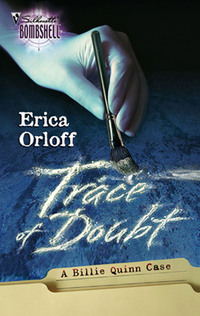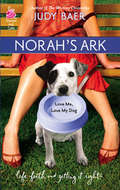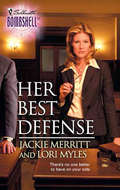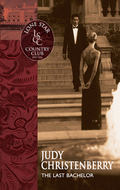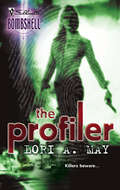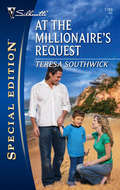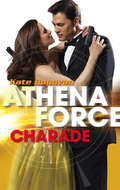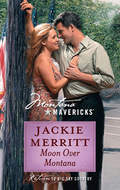Kitap dosya olarak indirilemez ancak uygulamamız üzerinden veya online olarak web sitemizden okunabilir.
Kitabı oku: «Trace Of Doubt»
A shock in the mail.
I opened my mail—several flyers advertising new texts on the science of DNA, genetic testing and crime-scene investigations…and one letter with no return address. I didn’t recognize the handwriting. “Ms. Billie McNamara Quinn.” How odd, I thought. I never used my middle name, which was actually my mother’s maiden name.
I opened the letter. Inside was a simple, typewritten piece of paper with the words:
I KNOW WHAT HAPPENED TO HER
Then my heart stopped as something fluttered to my desk. A tiny scrap of fabric, lavender roses on it.
A piece of the dress my mother was wearing when she disappeared.
Dear Reader,
Once again, I am revisiting the eccentric and brilliant team of criminalists and legal eagles in a Billie Quinn case. The stakes were high in Trace of Innocence, but now they’ve escalated considerably. Billie has to confront the origins of her very existence—her parentage—as well as her mother’s murder. In the meantime, the Justice Foundation seems to be falling apart, and Lewis LeBarge, her most trusted friend, may be lured away to Hollywood to host his own legal and criminal analysis show.
Like all Harlequin Bombshell novels, there’s plenty of intensity and action, intellectual as well as physical. And never has DNA been more a part of the headlines than now. I’ve always been interested in how cold cases are solved. The Billie Quinn books were born out of what I would want to read myself.
So I hope you enjoy. Please feel free to write me care of my Web site, www.ericaorloff.com—I love hearing from my fans. And look for the next Billie Quinn case soon!
Erica Orloff
Trace of Doubt
Erica Orloff

MILLS & BOON
Before you start reading, why not sign up?
Thank you for downloading this Mills & Boon book. If you want to hear about exclusive discounts, special offers and competitions, sign up to our email newsletter today!
Or simply visit
Mills & Boon emails are completely free to receive and you can unsubscribe at any time via the link in any email we send you.
ERICA ORLOFF
is a native New Yorker who relocated to sunny south Florida after vowing to never again dig her car out of the snow. She loves playing poker—a Bombshell trait—and likes her martinis dry. Visit her Web site at www.ericaorloff.com.
To J.D.
Acknowledgment
As always, my sincere appreciation to Margaret Marbury, my editor and friend. Thank you also to Natashya Wilson, who steers the Bombshell line with real vision and enthusiasm.
My agent, Jay Poynor, has never failed to support all of my endeavors. And my greatest gratitude to my family for understanding the ups and downs and highs and lows of the writing life and deadlines. A special nod to Kathy Johnson, who always reads my books and never fails to cheer me on. As for the rest of my pals—Writers’ Cramp, Pammie and the usual suspects—thanks from the bottom of my heart.
Contents
Chapter 1
Chapter 2
Chapter 3
Chapter 4
Chapter 5
Chapter 6
Chapter 7
Chapter 8
Chapter 9
Chapter 10
Chapter 11
Chapter 12
Chapter 13
Chapter 14
Chapter 15
Chapter 16
Chapter 17
Chapter 18
Chapter 19
Chapter 20
Chapter 21
Chapter 22
Chapter 23
Chapter 24
Chapter 25
Chapter 26
Chapter 27
Chapter 28
Chapter 29
Chapter 30
Chapter 31
Chapter 32
Chapter 1
You couldn’t really call it a playground.
I gingerly stepped over used condoms, empty beer cans and wine bottles—the cheap stuff—and cigarette butts. I saw syringes and tattered underwear and the trash of human existence—fast-food wrappers, old tires and broken glass. Eventually I made it onto the basketball court. There was no net—just a rim bent off to the right. I looked up at the projects that surrounded this little concrete court of human misery. Windows were broken, and the sounds of loud music and screaming and yelling in Spanish, English, Creole and Arabic drifted down. Smells wafted in the heat: Chinese food, the steamy air of the subways rising through grates, urine, gasoline.
“Charming,” Lewis LeBarge said, surveying the landscape. “Remind me again why we’re subjecting ourselves to this hellhole?”
We stood near the periphery of the court. A heated game was going on in full streetball fashion—hurled elbows and shoves that would have earned a foul in the NBA were just the way the game was played here. The shirts were playing the skins, with the skin team bare-chested, their tees wrapped around their heads to absorb the sweat from playing on an unseasonably hot June day.
“We’re checking out Marcus Hopkins’s story.”
Lewis wiped at his brow. He wore his trademark clothes—black Levi’s jeans, snakeskin boots that added an inch or so to his already lanky, six-foot, one-inch height, and a white oxford cloth shirt. I wore jeans and a fitted black T-shirt, with my long, black hair pulled into a high ponytail, and I was sweating, too.
“No pay, shit conditions, I swear we’re insane for doing this, Billie,” he said in his New Orleans drawl.
“Insane?” I snapped. “This from a man with a collection of human brains in formaldehyde,” I referred to my boss’s penchant for the macabre as head of the state crime lab in Bloomsbury, New Jersey.
The two of us were making this particular field trip for the Justice Foundation, a nonprofit group dedicated to freeing wrongfully imprisoned men, through the use of DNA testing. Ever since we’d solved the Suicide King murders, the publicity meant the foundation was inundated with requests that we investigate the cases of hundreds of prisoners.
Deciding which cases to take wasn’t easy. All of them said they were innocent. My guess is a fraction of them really were. We weeded through some of the ugliest crimes of humanity to try to discern which men were truly innocent, and we relied on DNA and old-fashioned detective work, interviewing and common sense to try to piece together reasonable doubt—or if we caught a break, proof of outright innocence. And all this we did on the side, in addition to our full-time jobs at the lab. What we had first signed on to do out of curiosity and Lewis’s crush on one of the foundation’s founders, we now did out of passion.
Marcus Hopkins was a baby-faced kid from the Bronx determined to get out of the projects. Unlike a lot of ghetto kids, he didn’t pin his hopes on the NBA, or a rap contract, but on academics. When a rape occurred on the basketball court of the projects, Marcus was named as the rapist by the victim. No DNA tied him to the victim, and he had an airtight alibi—he was at work two bus lines away, sweeping out the supply room of a burger joint.
The crime was completely out of character for Marcus, and his public defender was confident at first. But then witnesses began piling up, placing him at the crime scene—despite what his employer said. Then his boss turned out to have a record—an old conviction for assault from fifteen years prior, but enough that a jury might discount his testimony in the hands of a tough prosecutor. Before long, the public defender was urging Marcus to take a plea. Marcus drew eight years in adult prison. With his pretty face, it was brutal.
We had a small spot of blood on the victim’s shirt. It wasn’t hers, and it wasn’t Marcus’s, thus bolstering his claim of innocence. Lewis and I thought it belonged to whoever attacked her. She had put up a fight—and Marcus didn’t have a scratch on him. But she had washed before reporting her crime—not uncommon in rape cases. A woman is usually so distraught, has such an urgent need to get all touches of her rapist off her, she may shower, in a traumatic state, literally scrubbing away evidence.
Lewis and I scanned the project buildings. Marcus claimed that there was no way the rape went down as the victim said because the basketball court had action on it 24/7. There wasn’t any time, day or night, when a game wasn’t going on—this was one of the city’s top streetball talent courts.
“What do you think?” Lewis asked me.
“I think it would be awfully hard to rape a girl here, with all these supposed witnesses who just so happened to be too far away to help, but were close enough to get a look. Something’s fishy here. And another thing, usually in the projects no one sees anything. It’s like The Mob…you know? Everyone keeps his mouth shut.”
I knew what I was talking about. My father was a key player in the Irish Mob in New Jersey. Bookmaking, loansharking…and whatever else he and my brother could get their sticky fingers on.
“I think we have to go back to our victim, Billie.”
I nodded.
“I’m going to go take some digital pictures of the court from above, in one of the buildings, get a sense of what witnesses from the apartment may have seen. At night? My guess—nothing. You stay here. You’ll be all right?”
“Or my name ain’t Nancy Drew.”
“Well, it isn’t Nancy Drew. It’s Wilhelmina,” Lewis smirked at me.
Actually, my name isn’t Wilhelmina. It’s Billie, right there on my birth certificate, named after William Quinn, my grandfather, currently serving the last six months of a sentence on a racketeering charge.
Lewis walked toward the apartment building. I noticed, for the thousandth time in the half hour we’d been there, how the buildings blocked any wisp of breeze from blowing and cooling the steaming pavement. I was so hot that all I could think about was getting back to my apartment, stripping naked and lying in my air-conditioned bedroom on top of the covers.
The streetball game was getting pretty intense. A skin fouled a shirt pretty damn hard—elbowed him sharply enough I was sure he’d cracked his rib.
Suddenly the two guys were at it, big-time. Shoving, pushing, cursing and insulting each other’s mothers. Their assorted pals were also getting into it, and this mosh pit of a group suddenly came careening toward me.
I sidestepped out of the way, and one of the players came and pushed me.
“Whatcha lookin’ at?”
“Nothing.” I stared him straight in the eye—well, I had to crane my head to do so, but I knew better than to let him know I was intimidated.
“You’re not from here. What’re you and that guy lookin’ for, huh? Huh, bitch? You a cop?” He poked me in the chest.
“No. I’m a criminalist.”
“What the fuck is that?” He was backing me up, pushing me toward the chain-link fence.
“I’m looking into the Marcus Hopkins case. Know him? He supposedly raped a girl on this basketball court.”
In the time it took my eyes to blink, his hand throttled out to my throat. He wrapped his fingers around my neck—one hand almost encompassing it. I saw stars and my throat burned. My eyes teared. I struggled to make a sound, but nothing came out.
The shirts and skins were still brawling. If this guy strangled me to death, no one would stop him, and unlike the suspicious Marcus Hopkins case, I knew they’d all claim they saw nothing.
With all my might, I kicked my foot against his knee. He let go of my throat and started screaming, “Fuck!” I gasped at air as one of his pals came over.
“What’s up, man?”
“Fucking bitch just kicked my knee!” He was leaning over, but he looked up and stared at me with total hatred.
I looked over my shoulder, hoping Lewis was on his way back. Then I steadied my stance in case I had to defend myself again. My face was wet with tears from when he’d choked me. “I’m not looking for trouble,” I said.
“Listen,” the guy who’d choked me said, “no need you go messin’ around looking for who done that bitch. Marcus’s time is almost up. Everybody’s gotten their piece of the pie. If you know what’s good for you, you’ll butt the fuck out.”
He stood, and with a half limp walked back onto the court, where the game was resuming.
I swallowed hard a few times. My throat ached. Time almost up. Sure. Five more years in hell.
A minute or two later, Lewis strolled toward me. When he got up close to me, he said, “What in God’s name happened to you?”
“Don’t ask,” I whispered. “Not here.” I motioned with my head, and we walked back through the straggly weeds toward the break in the chain-link fence, and then onto the sidewalk. My Cadillac—left to me by my uncle Sean when he drew a life sentence—sat by the curb.
I unlocked the doors, and we climbed in. I pulled out into traffic and away from the projects.
“Your neck is all red, and you have that whole Kathleen Turner raspy-voice thing going. We should get you to the emergency room.”
“I’m fine,” I said. He knew better than to argue with me.
“What happened?”
“I was warned off pursuing the Marcus Hopkins case. He thought I was a cop at first. Weird thing was he implied…a payoff. Something about everybody getting their piece of the pie.”
“Do you know you have fingermarks imprinted on your neck? That’s going to leave bruises.”
I nodded. “You know this means we have to pursue this, right? Now we know for sure everything’s not right with that case.”
Lewis sighed. “I long for the days when life with you was normal.”
I turned to look at him as I hit a red light. “Lewis…you knew from the first day we met—there’s nothing normal about either one of us.”
“I suppose not. All right, then, Marcus Hopkins—” he spoke to the air, to me, to the spirits he believed didn’t rest until you put the real bad guy away “—I guess we’re going to find a way to set you free.”
Chapter 2
I reached across the bed at three in the morning and felt only cold sheets. Sitting up, I looked around through squinted eyes and saw the bluish light from the television set reflected underneath the door.
I bit my lip and climbed out of bed. The air-conditioning was on full blast, making it so I couldn’t hear a thing but its drone. I pulled on my soft flannel robe, opened the bedroom door and padded out to the couch where David sat watching CNN. He looked up at me and whispered, “I didn’t mean to wake you, baby. Go back to bed.”
Right after the Justice Foundation secured his unconditional release and he had become a free man, following nearly a decade in prison, he had been quiet but absorbed in his new life—eating his favorite foods again, being with loved ones, long walks with his dog, Bo, a saliva-sloppy Labrador-rottweiler mix who now slept at the foot of my bed most nights. David’s prison pallor was replaced by a new healthiness. But C.C., the nun who founded the Justice Foundation with attorney Joe Franklin, said eventually the weight of what David had lost—ten of the most vital years of his life—would prey upon him. I saw that now. His deep-brown eyes were sunken, with dark hollows beneath them. He couldn’t sleep, and when he did the nightmares often left him in a cold sweat and shaking.
I walked over to the couch and curled up next to him, snuggling against his arm. “You didn’t wake me. I love watching television at three in the morning. Let’s see if we can find a nice infomercial. I could use a set of Ginsu knives.”
He smiled, despite his haunted look. “God, I love your sense of humor. You help me more than you’ll ever know. But it’s just hard, Billie. I feel paranoid sometimes. I try to make small talk with people at the library, at the gym, sort of get used to the world again. And I keep waiting for them to ask me something that’ll reveal I was in prison. No matter how much reading and Internet surfing and everything I do, fact is I’ve been out of the mainstream for a long time. And I feel like everyone knows it. Like they can see it on me. Smell prison on me. And then I think about how I can’t ever get that time back.”
“I wish I knew how to make it better.”
He leaned over and kissed my cheek, taking his forefinger and tracing it along the line of my cheekbone. “Most of the time, you’re what does make it better. It’s just the nights, you know? Christ, what am I saying? You do know.”
I did. Some nights it was David who had the nightmare. Others, it was me. My mother was murdered when I was a little girl, and a strange mixture of memories of that night and half dreams haunted me. It was like walking into a fun-house maze and finding all my thoughts and recollections distorted somehow.
“Get your LSAT scores yet?” I asked.
“Not yet. But I really think I nailed the exam.”
He had earned a college degree in prison, and with his conviction overturned and the real killer behind bars, David was free to pursue a law career. He intended to be a defense attorney and free other men railroaded or framed the way he was.
“You studied hard enough.”
“Joe tutored me hard enough.” He was referring to the Justice Foundation’s lawyer, former NFL star turned legal eagle. David worked for the foundation now part-time, and the rest of his time was spent studying for law school or working on his book about his odyssey from prisoner to free man.
David caressed my neck. “I still can’t believe that guy did this to you.” My throat was mottled black and blue.
I waved my hand. “I’m a tough cookie.”
He took my hand and kissed it. “That may be, but that doesn’t mean I have to like what you do. I’ve been on the inside. I know how ugly it can be.”
His tongue traced a path along my palm and then the inside of my wrist. I shuddered. Our physical connection was always high-intensity. I slid one leg over him and straddled him, and we kissed for a while. I liked to run my fingers through his thick hair, which curled at the nape of his neck.
“Tired?” I asked him.
“Yeah,” he whispered. I slid back next to him and pulled the fleece blanket from the back of the couch over us. We sat on the couch like that, holding each other, for at least an hour, until we both dozed off. Next thing I knew, Bo was licking my bare feet and whimpering that he needed to be walked.
I stirred and looked at David. His face had a sculptured quality, with classical features. He rarely slept peacefully, but his face seemed serene as he slumbered, so I opted to walk the dog. I dressed in shorts and a T-shirt, took Bo for his walk, then came home and showered for Sunday brunch at Quinn’s Pub. I dressed in a denim skirt and a black tank top, with an emerald-colored scarf around my neck to hide the bruises, left David sleeping and drove off in my Cadillac to collect Lewis and then go to my uncle’s pub.
The first Sunday of every month is a sacred Quinn tradition. All Quinns not in prison are expected to attend, along with spouses, children and assorted stray friends and sidekicks we picked up along the way. Lewis was my usual brunch pal, just as I was his standard wedding date. David came when he wasn’t cramming for the LSATs or, in this rarity, sleeping in.
I parked my car outside Lewis’s house and let myself in with my key.
“Lewis?”
“Hunting for Ripper. Come on upstairs.”
I rolled my eyes and climbed the narrow wooden staircase to the second floor. The top of Ripper’s tank was moved to the side.
“How can a man who owns a pet tarantula lose said tarantula nearly every day? I mean, isn’t this the kind of pet that you might—call me crazy—want to keep in its tank? Keep an eye on?”
“He’s so gentle. I don’t know. I take him out, I put him on my desk, we have a conversation, the phone rings or the teakettle whistles, or my e-mail chimes out ‘You’ve got mail,’ and I take my eyes off him or go downstairs for just five minutes, and next thing I know he’s crept to the bathroom and is hanging out on my toothbrush. Just help me find him before we leave.”
“Fine,” I said. Then I sighed for effect. Lewis really did try my patience. Just as, I’m sure, I tried his.
I began scouring Ripper’s favorite haunts: behind Lewis’s collection of brains in formaldehyde-filled mason jars; tucked in the eyeball socket of the human skeleton in the corner of the room, whom Lewis called Schmedrick; inside any one of the used but not yet washed coffee mugs that dotted the bookshelves. I remember once picking up what I thought was my coffee mug and finding the very large and very hairy Ripper nestled inside.
“Nope, Lewis, I don’t see him anywhere.”
“Here, Ripper…come out, come out wherever you are.”
“Oh, Jesus! Look!” I pointed up at the poster of George Romero’s Dawn of the Dead. Ripper was perched on the corner, looking as if he belonged to one of the zombies depicted in the poster.
Lewis nodded. “Ripper has great taste in movies.” He walked over to Ripper and stuck out his hand. As if on command, Ripper extended a hairy leg and crawled onto Lewis’s palm. Lewis then took him and set him down inside his tank, putting the tank lid on tightly, and placing a dictionary on top of the lid for good measure. He started to leave, then stopped, looked at the tank and added a thesaurus on top of the dictionary.
“That should keep the rascal. I should have named him Houdini.”
“Come on,” I snapped. “We’ll be late for brunch.”
“Don’t want that,” Lewis said. “I hear your brother’s got a truckload of stolen DVDs he’s looking to get rid of. I’m hoping he’s got a few things I might actually want to watch, instead of like last time. I mean, who wants a DVD of Showgirls?”
“A lot of guys might like that.”
“Please. You’ve seen one breast in a pastie, you’ve seen ’em all. Anyway, I’m praying this is a good haul—like movies still in the theaters.”
Whereas I had long ago tired of the shenanigans of my brother and father, Lewis remained quite amused by them, perhaps because his own parents were so staid and boring.
Lewis and I descended the stairs and went outside to my car. I unlocked the doors, and we both climbed in.
“How’s David?” he asked. “Sleeping any better?”
I shook my head. “Not really…. And you?”
He looked out the passenger-side window. “No. Not any better at all.”
Lewis had an IQ over 160, and on a good night he usually slept about four hours, thriving on spending all night reading, playing chess over the Internet and often tormenting me with lengthy conversations about brain matter, blood spatter and serial killers. Then he fell in love with C.C.—a nun who for now was on a spiritual retreat trying to decide just what to do with her friendship with Lewis—and his insomniac life grew a lot worse, only now he was seriously depressed with a case of unrequited love.
“I’m sorry, Lewis.”
“Not one word from her. Not even a letter. Or telegram. Carrier pigeon. Nothing,” he wailed.
“She told you that she was going to go away and she wouldn’t contact you. Me. Any of us. She was going to pray about this, Lewis, and she’s just doing what she said she was going to do.”
“But that leaves me no opportunity to talk her into marrying me…. And yes, I used the M word.”
“I thought you were terrified of the M word.”
“I’m more terrified of living without C.C. Do you know I’ve never so much as kissed her? And if something happened to me and I died before doing so, I might think my life here had been a waste.”
“Lewis, when you’re in love, you’re more melodramatic than ever.”
I headed toward Hoboken. We found a parking spot on the street and walked two blocks to Quinn’s, already sweating in the pre-noon heat.
“Wish this God damn weather would break already,” Lewis muttered.
“You’re from New Orleans. Steamy humidity is in your blood.”
“Maybe, but it’s downright hellish around here. I expect this, south of the Mason-Dixon. But, my God, it’s miserable in Jersey.”
We reached the door to Quinn’s, stepped inside and felt a blast of air-conditioning that was a welcome break from the outside temperature. My uncle Tony came over and hugged me, his bald head shining. He shook Lewis’s hand and wrapped a tattooed arm around his neck. “Gang’s all here,” Uncle Tony growled.
Sitting at tables pulled together were my assorted cousins and my father and brother, and my brother’s girlfriend, Marybeth.
“Hi, Daddy,” I leaned over and kissed my father. My brother stood and grabbed me in a sort of headlock.
“Mikey…” I snapped, “we’re getting a little old for this.”
“Never.” He released my head and then hugged me tightly. “Got a whole truckload of bootleg DVDs in the back office there. Go pick through and take whatever you want.”
I narrowed my eyes and gave him a dirty look.
“What?” he asked.
“Mikey,” I said under my breath. “You promised me you’d straighten out.”
“Come on, Billie…it’s just a few DVDs.”
“It’s just a friggin’ parole violation.”
“I got the complete three-DVD set of The Godfather trilogy. You love that.”
I rolled my eyes but noticed Lewis was already heading back there.
“It’s all fun and games until I’m visiting you on Sundays and admiring your orange jumpsuit,” I said sarcastically.
“Come on, sit down and have a beer. You take life too seriously.”
I took a seat by him and poured myself a mug of beer from the pitcher on the table. Sunday brunch was family style. The place was closed until four in the afternoon, so it was only family. My uncle Tony’s short-order cook, Declan, right off the boat from Ireland—and as far as I knew with no immigration papers—made massive plates of scrambled eggs and home-fried potatoes, rashers of bacon and dozens of biscuits. Diets were forgotten in favor of good old-fashioned fatty food.
Lewis returned to the table with six DVDs—all horror movies, his and my favorite. “Nothing like some zombies,” he said. “Mikey, good haul this time.”
I glared at Lewis. “Stop encouraging him.”
Lewis sat down, poured himself a bloody Mary, and a couple of minutes later the platters of food started arriving at the table. We all ate until we were too stuffed to move.
After eating, my cousins—I had over twenty first cousins on the Quinn side—all left to go to a Yankees game. They had offered me tickets a couple of weeks before but I hadn’t been sure I could go, my Justice Foundation work was done in my spare time, which was precious. After my cousins left, my uncle Tony went into the stock room to take inventory, and my father, Lewis, Mikey and Marybeth remained, drinking beer and bloody Marys.
“I have something for you, Billie,” my father said.
“What?”
He stood and went behind the bar and returned with a rather large cardboard box and a small black velvet jewelry box. He handed me the jewelry box first. “Open it.”
I lifted the lid. Inside was nestled a diamond ring with an antique-looking platinum setting. I look at him, curious.
“It was your mother’s. I know she would have wanted you to have it. It was our engagement ring.”
My eyes involuntarily teared up. I took the ring out and showed it to Mikey. He swallowed hard a few times. “I don’t remember it.”
“Neither do I,” I said, not that most children pay attention to jewelry when they are very small.
“Put it on,” Marybeth urged.
I slipped it on to my finger. It was a tiny bit loose, but not so loose that it would fall off or I would lose it. I held my hand out. The diamond sparkled.
“It’s beautiful, Dad.”
He then opened the cardboard box and handed Mikey what looked like a big wad of newspapers. Mikey unwrapped whatever was inside the old newspapers—and found a statue of a bride and groom.
“That was on our wedding cake,” my father said. He was still as handsome as the photos of them when they were young. He hadn’t gained an ounce, and his eyes were still pale blue and striking, his hair black, with touches of gray now at the temples. His skin was unlined, except for the hints of crow’s feet around his eyes and deep smile lines near his nose.
“Thanks, Dad,” Mikey said. He turned the figurine over in his hands and then showed it to Marybeth.
Then my father handed me the cardboard box itself. I peered inside. “What are these?” I asked him.
“Cards and letters she kept—letters I sent. I guess letters from her mother and sister. Birthday cards. Valentine’s Day. I couldn’t stand the idea of reading them, so I stuck them in the box and forgot about them. You’re the one who wants…you know…to figure it out. I thought you should have them.”
My father never could bring himself to say, “Your mother was murdered.” He always said she “passed away,” conjuring images of a woman who went to bed one night and didn’t wake up. And I was the one obsessed with solving her murder. I had files of evidence and theories. My very job was, on some level, chosen because it would enable me to learn more about her death.
“Dad?” I asked, “How come you never gave me these before?” I could only imagine what clues the box might yield.
He shrugged. “I don’t know. I kind of thought it was disrespectful to…you know…invade her privacy like that.”
I nodded.
“Why are you giving us all this stuff, Dad?” Mikey asked.
Dad sighed. “Well, with you two living on your own, I been thinkin’ that maybe it’s time I sold the house. I’ve got the condo in Florida and the place at the Jersey shore. Been thinking I might just get a condo around here. Don’t need a big old house anymore.”
“But…” I looked at him. I’d always imagined a someday when I would come home to the house I grew up in with my own children. I mean, I wasn’t anywhere close to having kids myself, but that didn’t preclude the idea from being there. My childhood home had a treehouse in the big oak tree out back, and Mikey and I used to play catch out in the yard. Like every boy, he dreamed of the majors, until, unlike every boy, he started dreaming of hot-wiring cars. “The house?” I swallowed hard.
“I’m just rattling around in there. I mean, there’s no sign on the front lawn yet, but I figured I better finally go through her things.”
Ücretsiz ön izlemeyi tamamladınız.
